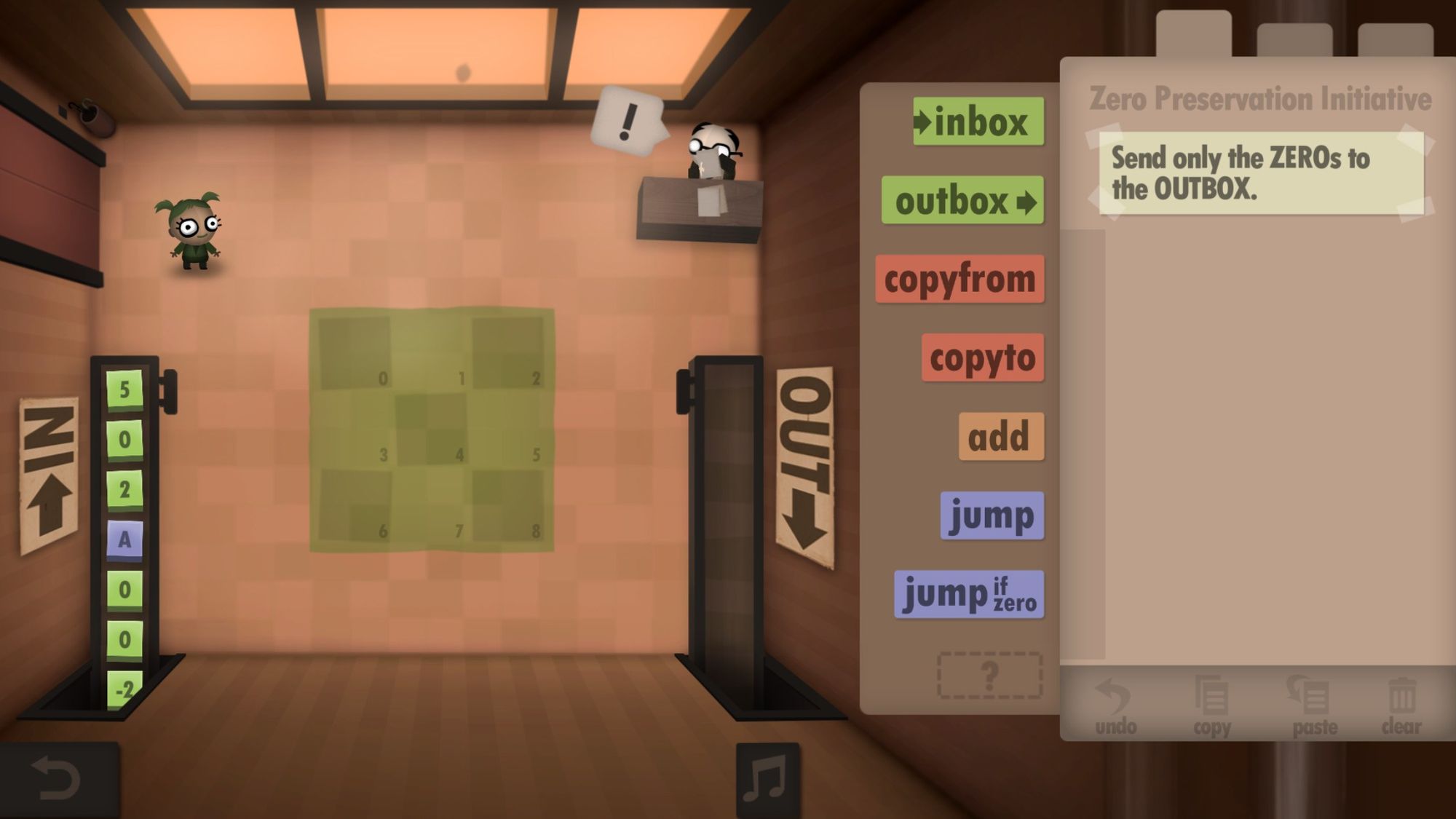I don't spend as much time on computer games as I used to, not counting time playing head to head boardgames over Vassal/etc., but every once in a while manage to get distracted or spend some time on a 1st person shooter, third person shoot and slash, strategy or wargame, pr straight up arcade game.
Then there's the genre of sandbox/physics/etc. games like Rimworld, Factorio, etc., that end up requiring you to think in systems and logistics.
I've got a love-hate relationship with games - more accurately puzzles - from Tomorrow Corporation. From a mechanics and UI standpoint, World of Goo was an interesting take on your bridge/tower/building simulator. From the point of aesthetics though? The (leftist) social commentary aspect, the drabness, etc., were all suffocating, such that I never returned once I cleared most of it. Turns out there's kindof a happy ending - the goo balls saved at the beginning find a new home - but from a story perspective anything beyond that first level was futile.
Enter "Human Resource machine".
A lot of "educational" programming games and programming-tutorials-that-are-supposed-to-be-fun fail miserably at the "fun" part. Often also the "educational" part. This does not. It gradually introduces you, via the metaphor of filing and collating blocks between an inbox and an outbox, to basic machine language concepts that underlie even the least abstract languages like "C". By the time you're done you'll have some concept of allocated memory, why dividing and multiplying is far more expensive than adding and subtracting, and without knowing it you'll have picked up concepts like pointers, and even some underlying concepts like registers.
All by restructuring and dragging and dropping simple commands to bump, add, subtract, copy, write, and jump to code sections.

From a UI and puzzle perspective, it's bloody brilliant, and if you're the kind of person who would enjoy programming on occasion, it's an excellent game to make you think of how things are broken down at a low level beneath most languages used these days. It's weakest point from a gameplay perspective is that some of the more advanced sort concepts may require some digging around on the net to figure out a working algorithm or method.
But the aesthetic?
Dark, drab, and the background plot involves abusive bosses and stupid corporate decisions without the light touch of Dilbert, plus a robot takeover/invasion. The "sass" certainly grates after a while.
That said, HR is a den of evil.

